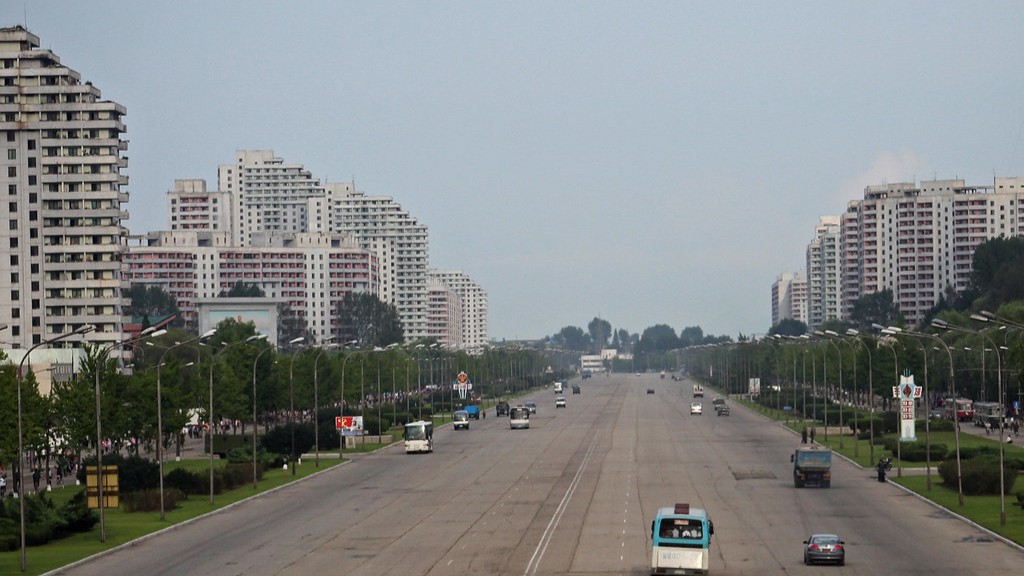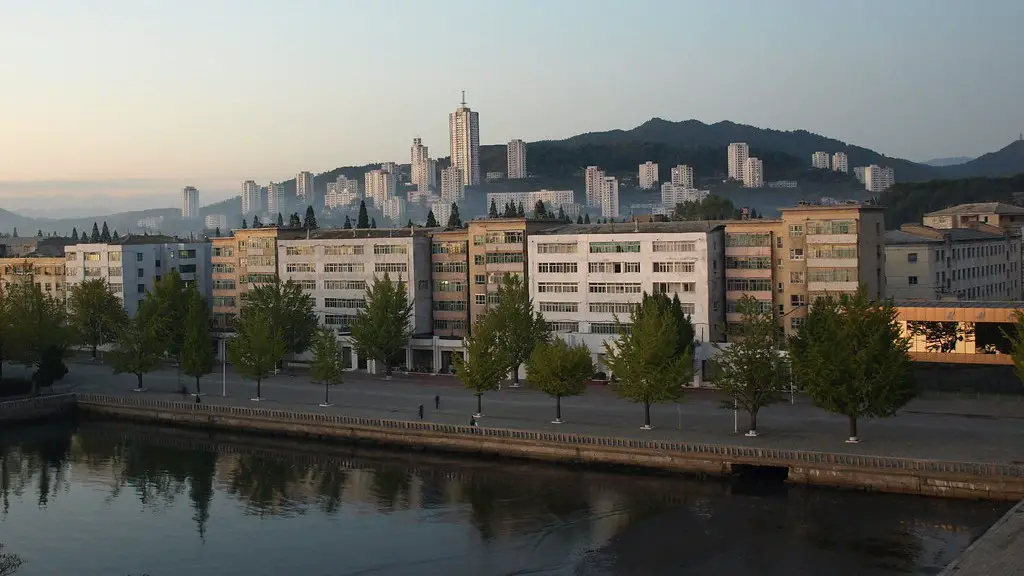Background Information
North Korea is a Communist state in East Asia that is officially known as the Democratic People’s Republic of Korea. It is bordered by South Korea, China and Russia and has a population of around 24 million people. North Korea is ruled by a single-party regime, which is headed by current Supreme Leader Kim Jong-un, son of former leader Kim Jong-il. North Korea has been isolated from the rest of the world since its independence in 1945, and continues to be one of the most heavily sanctioned countries in the world.
International Relations
North Korea plays a huge role in the international political landscape due to its nuclear weapons programme and its human rights issues. The United Nations has passed multiple resolutions targeting North Korea’s continued development of nuclear weapons and its egregious human rights abuses. North Korea has also been involved in multiple conflicts with both South Korea and the United States, notably the Korean War in 1950 and the crisis in 2016. North Korea has also been accused of cyber warfare and cyber attacks from many countries around the world.
Human Rights Issues in North Korea
North Korea is widely known for its brutal repression of its population and for its extensive violations of human rights. This is a nation that does not tolerate any dissent or criticism of the government and its political system. The government in Pyongyang maintains a tight grip on its citizens, controlling the information and resources available to them. Human rights abuses in North Korea include forced labor, torture, public executions, repression of religious activities, and arbitrary arrests and detentions. The UN has repeatedly called on North Korea to end its human rights violations.
Media and International Pressure
Due to North Korea’s enigmatic nature and its complete lack of transparency concerning its nuclear programme, the international community has been heavily focused on attempting to bring an end to the regime’s continued development of nuclear weapons. The United States, Japan, and South Korea have all enacted a hardline approach, ratcheting up sanctions in an effort to restrict the flow of resources and put pressure on the North Korean government.
Importance to the Global Economy
North Korea is important to the global economy for a number of reasons, not least of which is its geopolitical significance and its access to mineral resources. The regime in Pyongyang does not always adhere to international laws and regulations, making it an unpredictable, often volatile trading partner. This uncertainly has led to economic sanctions from the UN, US and other countries, impacting global markets and investment opportunities in North Korea.
Public Opinion
Many people in the United States and other western countries have strong opinions about the North Korean government and its policies. There has been a significant movement towards holding the Kim regime responsible for the human rights abuses that have occurred in the country. In some cases, this has resulted in public protests, petitions and advocacy efforts in an effort to put pressure on Pyongyang to end its oppressive rule.
Non-Proliferation Efforts
The United States and its allies have made multiple attempts to negotiate with Pyongyang in order to bring an end to the regime’s development of nuclear weapons. However, these efforts have failed, with North Korea continuing to flout international law by continuing its nuclear programme. This has led to increased diplomatic and economic pressure from the US and from other nations, and has created uncertainty in the international community.
Cultural and Historical Considerations
The North Korean government and its population both have rich and unique cultural and historical heritages. While these cultural and historical aspects can often be overlooked due to the regime’s oppressive nature, these are still important aspects of the nation’s identity. North Korea may be a strongly authoritarian state, but its culture and its people should still be respected and appreciated.
International Involvement
International involvement in North Korea has been a contentious issue for many years. The US, South Korea, and Japan in particular have long advocated for a more active role in bringing an end to the regime’s oppressive rule and its development of nuclear weapons. However, the lack of transparency from the government in Pyongyang has made it difficult to measure the effectiveness of any such involvement.
Regional Security Concerns
North Korea’s ongoing nuclear weapons programme poses a serious security concern to the region. The US and South Korea have implemented various military drills and carrying out military exercises in order to be prepared for any potential aggression from the North. Additionally, the US and its allies have worked together to strengthen its defense capabilities, both to protect their own interests and to deter further provocation from North Korea.
Future Prospects
The future of North Korea is highly uncertain and unclear at this time. The Kim regime’s belligerent attitude and its development of nuclear weapons has raised alarm bells throughout the international community, and yet there appears to be no end in sight to its rule. There are some who advocate for regime change, while others advocate for greater diplomatic efforts. Only time will tell what the future holds for this enigmatic nation.


